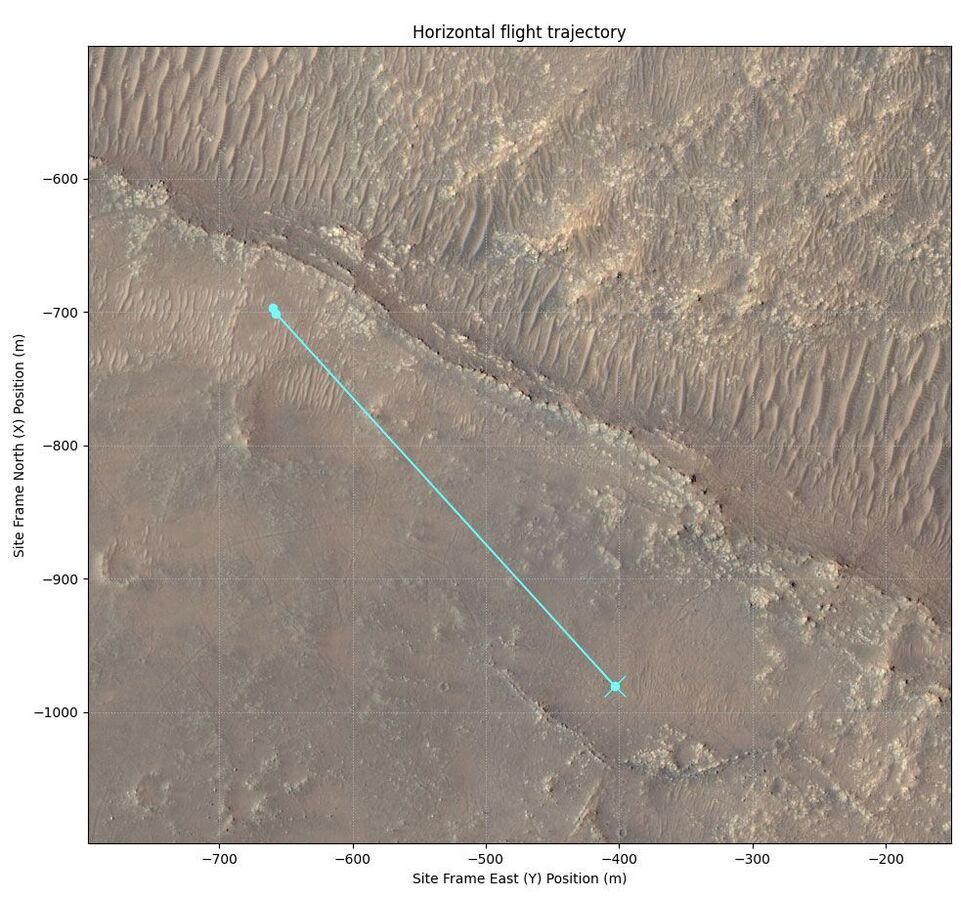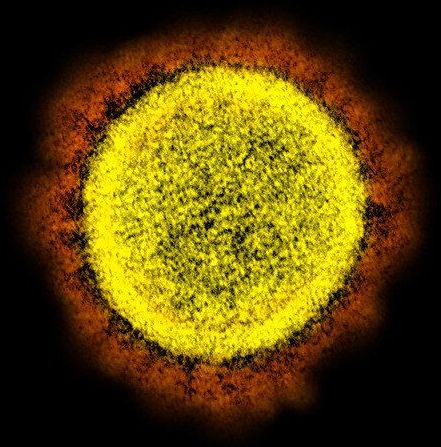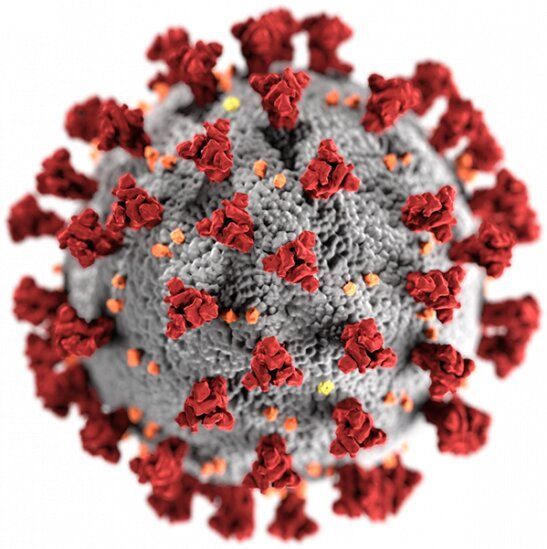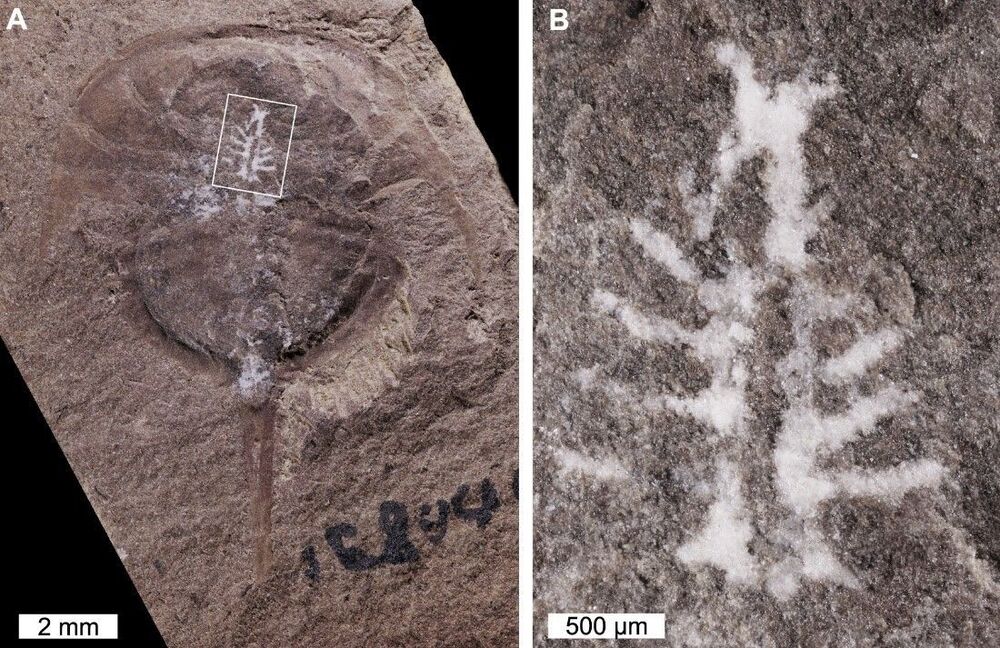Airports have vast swaths of empty land and rooftops. But it’s not so easy as just covering everything with solar panels.



We’re heading northwest for the 11th flight of NASA’s Ingenuity Mars Helicopter, which will happen no earlier than Wednesday night, Aug. 4. The mission profile is designed to stay ahead of the rover – supporting its future science goals in the “South Séítah” region, where it will be able to gather aerial imagery in support of future Perseverance Mars rover surface operations in the area.
Here is how we plan to do it: On whatever day the flight takes place, we will start at 12:30 p.m. local Mars time (on Aug. 4, this would be 9:47 p.m. PDT/Aug. 5, 12:47 a.m. EDT). Ingenuity wakes up from its slumber and begins a pre-programmed series of preflight checks. Three minutes later, we’re off – literally – climbing to a height of 39 feet (12 meters), then heading downrange at a speed of 11 mph (5 meters per second).
And while Flight 11 is primarily intended as a transfer flight – moving the helicopter from one place to the other — we’re not letting the opportunity go to waste to take a few images along the way. Ingenuity’s color camera will take multiple photos en route, and then at the end of the flight, near our new airfield, we’ll take two images to make a 3D stereo pair. Flight 11 – from takeoff to landing –- should take about 130 seconds.
Driver Clocks And Longevity — Dissecting True Functional “Drivers” Of Aging Phenotypes — Dr. Daniel Ives Ph.D., Founder and CEO — Shift Bioscience Ltd.
Dr. Daniel Ives, Ph.D. is Founder and CEO of Shift Bioscience Ltd. (https://shiftbioscience.com), a biotech company making drugs for cellular rejuvenation in humans through the application of machine-learning ‘driver’ clocks to cellular reprogramming, and is the scientific founder who first discovered the gene shifting targets upon which the Shift drug discovery platform is based.
Dr. Ives graduated from Imperial College with a degree in biochemistry and gained his PhD in 2013 working at the MRC Mitochondrial Biology Unit in Cambridge. He carried out his post-doctoral studies under Ian Holt at the National Institute of Medical Research in Mill Hill, now part of the Crick Institute, pursuing damage-removal strategies for mitochondrial DNA mutations.
In 2016 Dr. Ives left the Crick Institute and founded Shift Bioscience to commercialize mitochondrial targeted drugs for age linked diseases, incorporating novel ageing biomarkers technologies, CRISPR screens, and other tools to dissect true functional ‘drivers’ of ageing phenotypes.
Commercial Sauna Vs Home Sauna.
The last year has turned all our worlds upside down.
Even if we had our diet, exercise and sauna routine locked down before, suddenly all the venues were closed, or we did not feel comfortable visiting them as they were too crowded and too enclosed.
But we can sauna at home these days, and it is relatively affordable, but are they as good as the commercial saunas we had been using?
Are sauna tents worth the money?
Are portable steam saunas, and infrared saunas as good as the professionally installed home saunas that cost a fortune, and are either of them as good as the ones we used to visit that are run commercially as established premises with all the benefits they offer?
Well, in an attempt to answer these questions, I have looked at all the pros and cons of both and dissected them to try and help you make that decision.
Whether you are rich or poor, I have considered your options and attempted to answer those questions.
So follow me, as we take a stroll into the wonderful world of getting a bit sweaty… and all so we can live longer and healthier.

A licensed drug normally used to treat abnormal levels of fatty substances in the blood could reduce infection caused by the SARS-CoV-2 virus by up to 70 percent, reveals a study in the laboratory by an international collaboration of researchers.
The research team, led by the University of Birmingham and Keele University in the UK and the San Raffaele Scientific Institute in Italy, has demonstrated that fenofibrate and its active form (fenofibric acid) can significantly reduce SARS-COV-2 infection in human cells in the laboratory. Importantly, reduction of infection was obtained using concentrations of the drug which are safe and achievable using the standard clinical dose of fenofibrate. Fenofibrate, which is approved for use by most countries in the world including the US Food and Drug Administration (FDA) and the UK’s National Institute for Health and Care Excellence (NICE), is an oral drug currently used to treat conditions such as high levels of cholesterol and lipids (fatty substances) in the blood.
The team is now calling for clinical trials to test the drug in hospitalized COVID-19 patients, to be carried out in addition to two clinical trials also currently underway in such patients in research being led by the Hospital of the University of Pennsylvania in the US and Hebrew University of Jerusalem in Israel.

The Pfizer coronavirus vaccine may be linked to a form of eye inflammation called uveitis, according to a multicenter Israeli study led by Prof. Zohar Habot-Wilner from Tel Aviv’s Sourasky Medical Center.
The research was conducted at Rambam Health Care Campus, Galilee Medical Center, Shaare Zedek Medical Center, Sheba Medical Center in Tel Hashomer, Kaplan Medical Center and Sourasky. It was accepted for publication by the peer-reviewed ophthalmology journal Retina.
Habot-Wilner, head of the Uveitis Service at the hospital, found that 21 people (23 eyes) who had received two shots of the Pfizer vaccine developed uveitis within one to 14 days after receiving their first shot or within one day to one month after the second.

Researchers remain perplexed as to why some patients infected with SARS-CoV-2, the virus responsible for COVID-19, remain asymptomatic while other patients develop severe disease symptoms. This question is once again at the front of mind as the Delta variant spreads across the country. In a new retrospective study, researchers at the Medical University of South Carolina (MUSC) discovered a specific and sensitive biomarker in blood samples that predicts which patients will develop COVID-19 symptoms. Their results, published online on July 9 in Scientific Reports, show that reduced levels of a specific lipid, sphingosine, are significantly associated with developing COVID-19 symptoms. Conversely, elevated levels of sphingosine, as well as a protein involved in its production, acid ceramidase (AC), are associated with asymptomatic infections.
“We developed this project at a time when there wasn’t a successful vaccine,” said Besim Ogretmen, Ph.D., director of the Lipidomics Shared Resource at Hollings Cancer Center and leader of the Hollings Developmental Cancer Therapeutics Research Program. “We wanted to contribute to the field and know which patients who were exposed to this virus would be symptomatic versus asymptomatic.”
Over the past 16 months several waves of SARS-CoV-2 infections in the U.S. have resulted in more than 35 million cases and almost 630000 deaths. Despite the development of multiple safe and effective vaccines, we are currently experiencing another wave of infections.

Circa 2020
The basic idea behind all nuclear power plants is the same: Convert the heat created by nuclear fission into electricity. There are several ways to do this, but in each case it involves a delicate balancing act between safety and efficiency. A nuclear reactor works best when the core is really hot, but if it gets too hot it will cause a meltdown and the environment will get poisoned and people may die and it will take billions of dollars to clean up the mess.
The last time this happened was less than a decade ago, when a massive earthquake followed by a series of tsunamis caused a meltdown at the Fukushima Daiichi power plant in Japan. But a new generation of reactors coming online in the next few years aims to make these kinds of disasters a thing of the past. Not only will these reactors be smaller and more efficient than current nuclear power plants, but their designers claim they’ll be virtually meltdown-proof. Their secret? Millions of submillimeter-size grains of uranium individually wrapped in protective shells. It’s called triso fuel, and it’s like a radioactive gobstopper.
Triso— short for “tristructural isotropic”—fuel is made from a mixture of low enriched uranium and oxygen, and it is surrounded by three alternating layers of graphite and a ceramic called silicon carbide. Each particle is smaller than a poppy seed, but its layered shell can protect the uranium inside from melting under even the most extreme conditions that could occur in a reactor.


Researchers have discovered one of the oldest and best-preserved brains in the fossil record. A 310-million-year-old horseshoe crab was found with its complete brain intact, thanks to a previously unknown preservation method.
The majority of our knowledge of ancient creatures comes from bones – soft tissues don’t fossilize very well. Some mechanisms are better than others at preserving these fragile tissues though, most famously amber. Scientists can then scan amber-encased creatures to image their brains and other organs.
But that record only goes back so far. The oldest amber inclusions date back about 230 million years ago, to the Triassic period. Burgess Shale-type deposits, however, extend as far back as 520 million years ago, to the early Cambrian. These mudstone deposits can also preserve soft tissues as carbon films – most commonly the gut, but on rare occasions imprints of parts of the nervous system can be found.